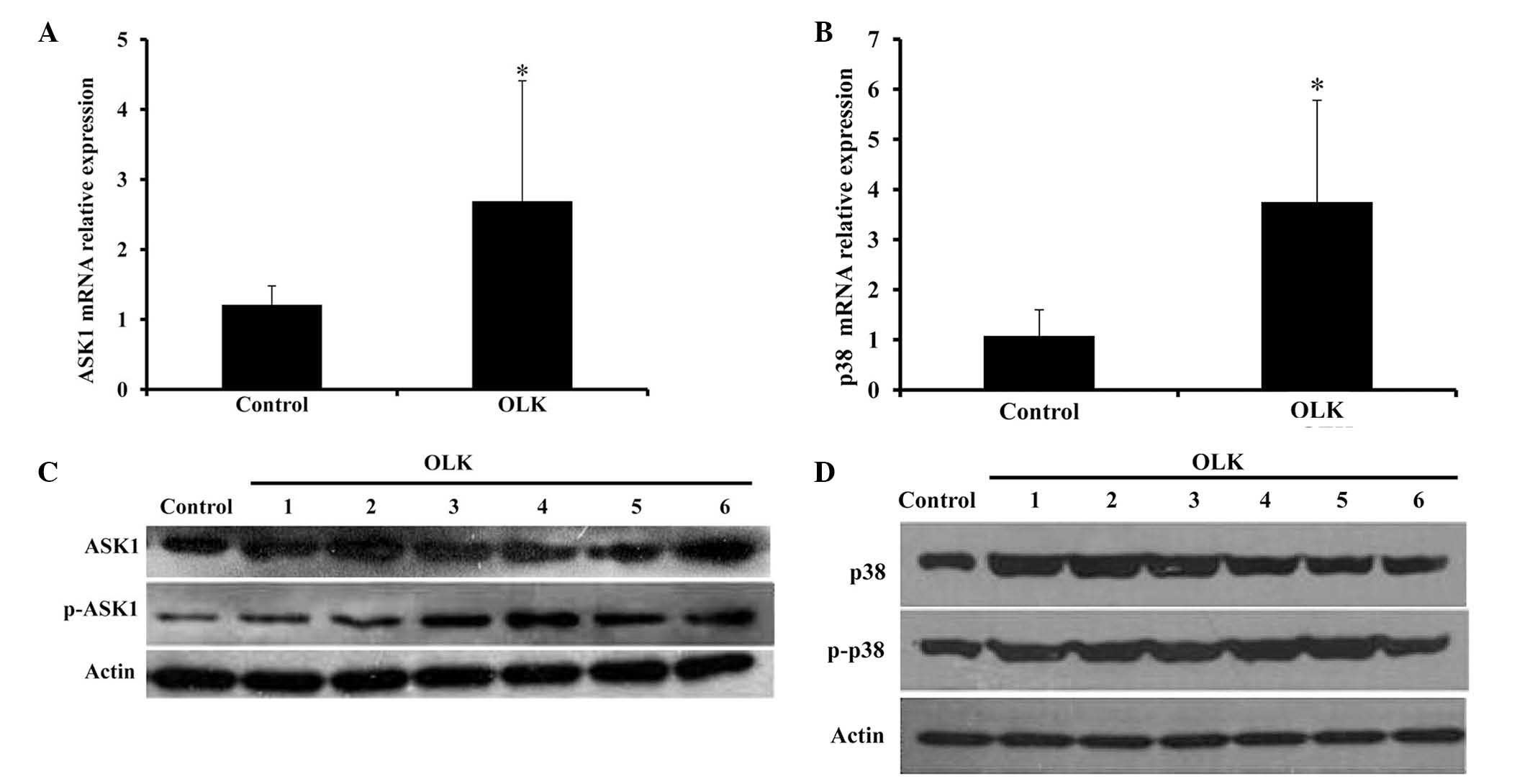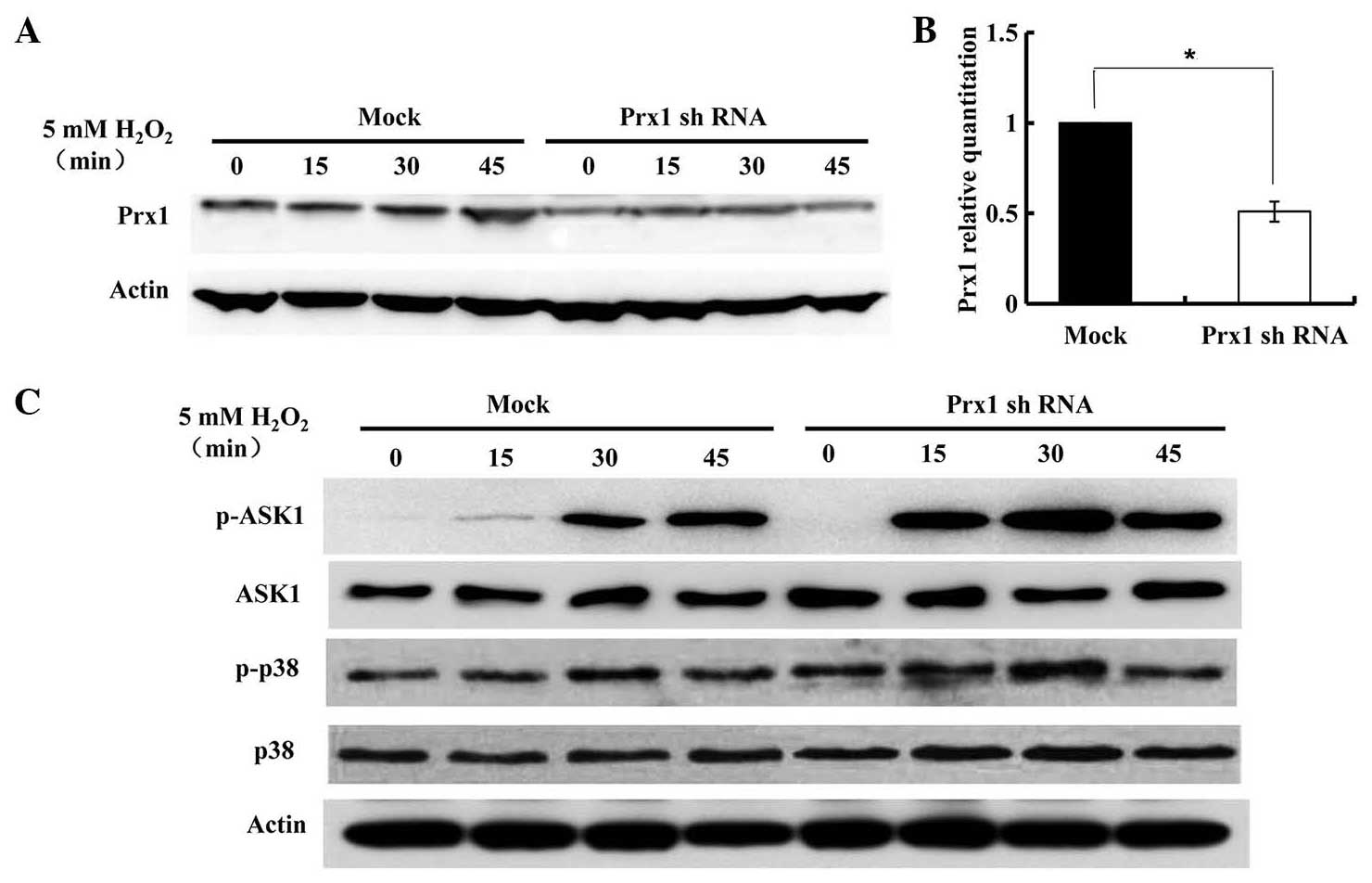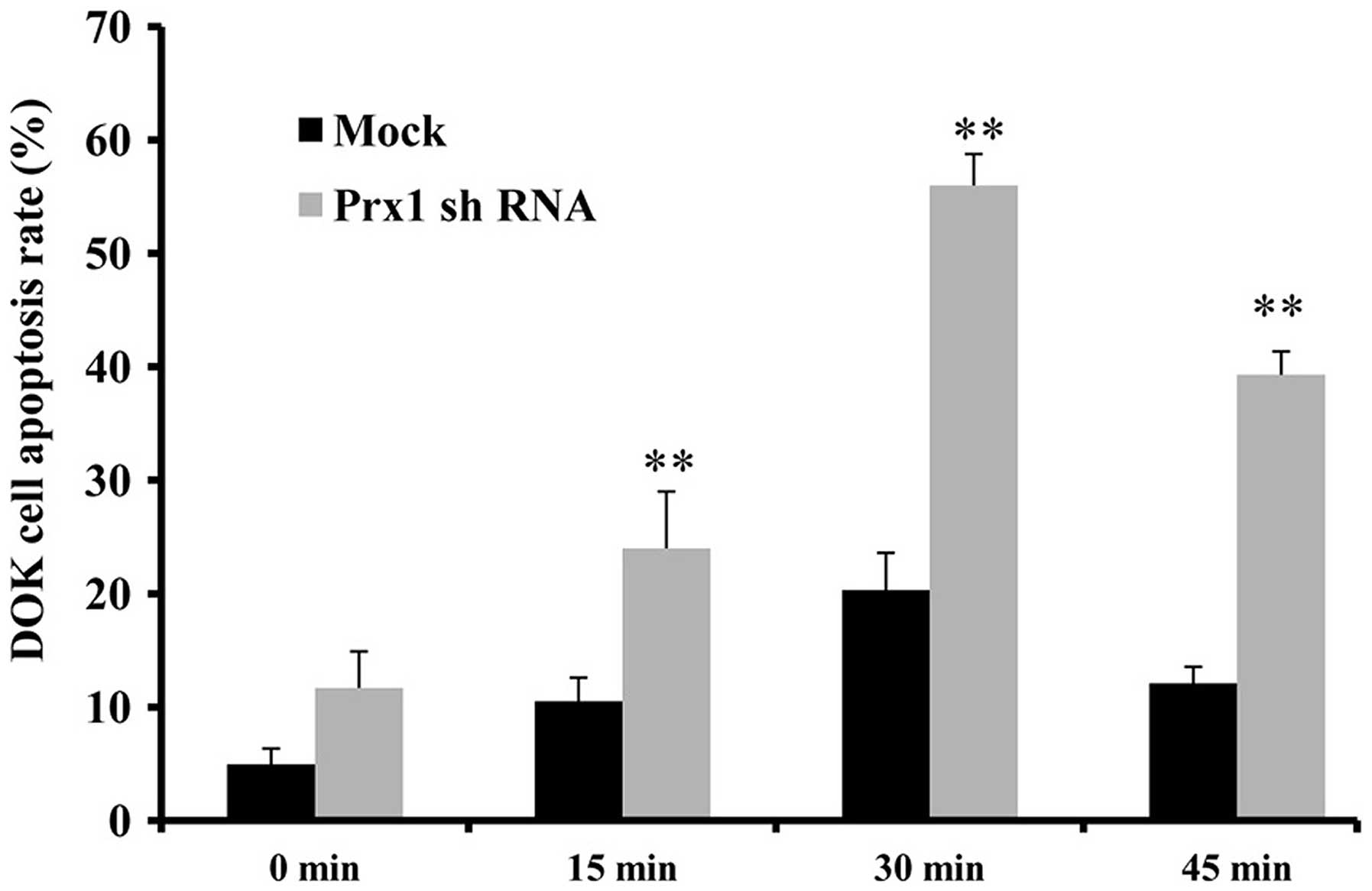|
1
|
Messadi DV: Diagnostic aids for detection
of oral precancerous conditions. Int J Oral Sci. 5:59–65. 2013.
View Article : Google Scholar : PubMed/NCBI
|
|
2
|
van der Waal I: Oral potentially malignant
disorders: Is malignant transformation predictable and preventable?
Med Oral Patol Oral Cir Bucal. 19:e386–e390. 2014. View Article : Google Scholar : PubMed/NCBI
|
|
3
|
Neville BW and Day TA: Oral cancer and
precancerous lesions. CA Cancer J Clin. 52:195–215. 2002.
View Article : Google Scholar : PubMed/NCBI
|
|
4
|
Nayyar AS and Khan M: In search of
malignant transformation: A pilot study. J Cancer Res Ther.
8:277–281. 2012. View Article : Google Scholar : PubMed/NCBI
|
|
5
|
Metgud R and Bajaj S: Evaluation of
salivary and serum lipid peroxidation, and glutathione in oral
leukoplakia and oral squamous cell carcinoma. J Oral Sci.
56:135–142. 2014. View Article : Google Scholar : PubMed/NCBI
|
|
6
|
Yanagawa T, Iwasa S, Ishii T, Tabuchi K,
Yusa H, Onizawa K, Omura K, Harada H, Suzuki H and Yoshida H:
Peroxiredoxin I expression in oral cancer: A potential new tumor
marker. Cancer Lett. 156:27–35. 2000. View Article : Google Scholar : PubMed/NCBI
|
|
7
|
Cha MK, Suh KH and Kim IH: Overexpression
of peroxiredoxin I and thioredoxin1 in human breast carcinoma. J
Exp Clin Cancer Res. 28:932009. View Article : Google Scholar : PubMed/NCBI
|
|
8
|
Zhao YH, Zhang M, Yan F, Casto BC and Tang
XF: Nicotine-induced upregulation of antioxidant protein Prx 1 in
oral squamous cell carcinoma. Chin Sci Bull. 58:1912–1918. 2013.
View Article : Google Scholar
|
|
9
|
Turner-Ivey B, Manevich Y, Schulte J,
Kistner-Griffin E, Jezierska-Drutel A, Liu Y and Neumann CA: Role
for Prdx1 as a specific sensor in redox-regulated senescence in
breast cancer. Oncogene. 32:5302–5314. 2013. View Article : Google Scholar : PubMed/NCBI
|
|
10
|
Kim YJ, Lee WS, Ip C, Chae HZ, Park EM and
Park YM: Prx1 suppresses radiation-induced c-Jun NH2-terminal
kinase signaling in lung cancer cells through interaction with the
glutathione S-transferase Pi/c-Jun NH2-terminal kinase complex.
Cancer Res. 66:7136–7142. 2006. View Article : Google Scholar : PubMed/NCBI
|
|
11
|
Turjanski AG, Vaqué JP and Gutkind JS: MAP
kinases and the control of nuclear events. Oncogene. 26:3240–3253.
2007. View Article : Google Scholar : PubMed/NCBI
|
|
12
|
Kim SY, Kim TJ and Lee KY: A novel
function of peroxiredoxin 1 (Prx-1) in apoptosis signal-regulating
kinase 1 (ASK1)-mediated signaling pathway. FEBS Lett.
582:1913–1918. 2008. View Article : Google Scholar : PubMed/NCBI
|
|
13
|
Wu Z, Sheng H, Chen Y, Tang J, Liu Y, Chen
Q, Lu L and Jin W: Copy number variation of the Lipoprotein(a)
(LPA) gene is associated with coronary artery disease in a southern
Han Chinese population. Int J Clin Exp Med. 7:3669–3677.
2014.PubMed/NCBI
|
|
14
|
Lowry OH, Rosebrough NJ, Farr AL and
Randall RJ: Protein measurement with the Folin phenol reagent. J
Biol Chem. 193:265–275. 1951.PubMed/NCBI
|
|
15
|
Memon AA, Chang JW, Oh BR and Yoo YJ:
Identification of differentially expressed proteins during human
urinary bladder cancer progression. Cancer Detect Prev. 29:249–255.
2005. View Article : Google Scholar : PubMed/NCBI
|
|
16
|
Xie Q, Zhou Y, Lan G, Yang L, Zheng W,
Liang Y and Chen T: Sensitization of cancer cells to radiation by
selenadiazole derivatives by regulation of ROS-mediated DNA damage
and ERK and AKT pathways. Biochem Biophys Res Commun. 449:88–93.
2014. View Article : Google Scholar : PubMed/NCBI
|
|
17
|
Ge LH, Hou M, Yang J, Chen T and Tang XF:
Prx1 overexpression in human OLK. Beijing J Stomatology.
20:135–137. 2012.
|
|
18
|
Chatterjee S, Feinstein SI, Dodia C,
Sorokina E, Lien YC, Nguyen S, Debolt K, Speicher D and Fisher AB:
Peroxiredoxin 6 phosphorylation and subsequent phospholipase A2
activity are required for agonist-mediated activation of NADPH
oxidase in mouse pulmonary microvascular endothelium and alveolar
macrophages. J Biol Chem. 286:11696–11706. 2011. View Article : Google Scholar : PubMed/NCBI
|
|
19
|
Tang XF, Zhang XY and Zhang M: The
differences expression of oxidative stress-related genes in oral
cancer and precancerous cells. Beijing J Stomatology. 16:308–311.
2008.
|
|
20
|
Zhang JF, Tang XF, Ge LH, Yang J, Niu WW,
Zhang M and Chen T: Role of apoptosis signal-regulating kinase 1 in
the cell apoptosis in oral leukoplakia. Beijing J Stomatology.
22:65–69. 2014.
|
|
21
|
Nakagawa H, Hirata Y, Takeda K, Hayakawa
Y, Sato T, Kinoshita H, Sakamoto K, Nakata W, Hikiba Y, Omata M, et
al: Apoptosis signal-regulating kinase 1 inhibits
hepatocarcinogenesis by controlling the tumor-suppressing function
of stress-activated mitogen-activated protein kinase. Hepatology.
54:185–195. 2011. View Article : Google Scholar : PubMed/NCBI
|
|
22
|
Hayakawa Y, Hirata Y, Nakagawa H, Sakamoto
K, Hikiba Y, Kinoshita H, Nakata W, Takahashi R, Tateishi K, Tada
M, et al: Apoptosis signal-regulating kinase 1 and cyclin D1
compose a positive feedback loop contributing to tumor growth in
gastric cancer. Proc Natl Acad Sci USA. 108:780–785. 2011.
View Article : Google Scholar : PubMed/NCBI
|
|
23
|
Koul HK, Pal M and Koul S: Role of p38 MAP
kinase signal transduction in solid tumors. Genes Cancer.
4:342–359. 2013. View Article : Google Scholar : PubMed/NCBI
|
|
24
|
Che JP, Li W, Yan Y, Liu M, Wang GC, Li
QY, Yang B, Yao XD and Zheng JH: Expression and clinical
significance of the nin one binding protein and p38 MAPK in
prostate carcinoma. Int J Clin Exp Pathol. 6:2300–2311.
2013.PubMed/NCBI
|
|
25
|
Takeda K, Matsuzawa A, Nishitoh H and
Ichijo H: Roles of MAPKKK ASK1 in stress-induced cell death. Cell
Struct Funct. 28:23–29. 2003. View Article : Google Scholar : PubMed/NCBI
|
|
26
|
Soqa M, Matsuzawa A and Ichijo H:
Oxidative stress-induced diseases via the ASK1 signaling pathway.
Int J Cell Biol. 2012:4395872012.PubMed/NCBI
|
|
27
|
Du ZX, Yan Y, Zhang HY, Liu BQ, Gao YY,
Niu XF, Guan Y, Meng X and Wang HQ: Suppression of MG132-mediated
cell death by peroxiredoxin 1 through influence on ASK1 activation
in human thyroid cancer cells. Endocr Relat Cancer. 17:553–560.
2010. View Article : Google Scholar : PubMed/NCBI
|
|
28
|
Lee YM, Park SH, Shin DI, Hwang JY, Park
B, Park YJ, Lee TH, Chae HZ, Jin BK, Oh TH, et al: Oxidative
modification of peroxiredoxin is associated with drug-induced
apoptotic signaling in experimental models of Parkinson disease. J
Biol Chem. 283:9986–9998. 2008. View Article : Google Scholar : PubMed/NCBI
|
|
29
|
Jarvis RM, Hughes SM and Ledgerwood EC:
Peroxiredoxin 1 functions as a signal peroxidase to receive,
transduce, and transmit peroxide signals in mammalian cells. Free
Radic Biol Med. 53:1522–1530. 2012. View Article : Google Scholar : PubMed/NCBI
|



















